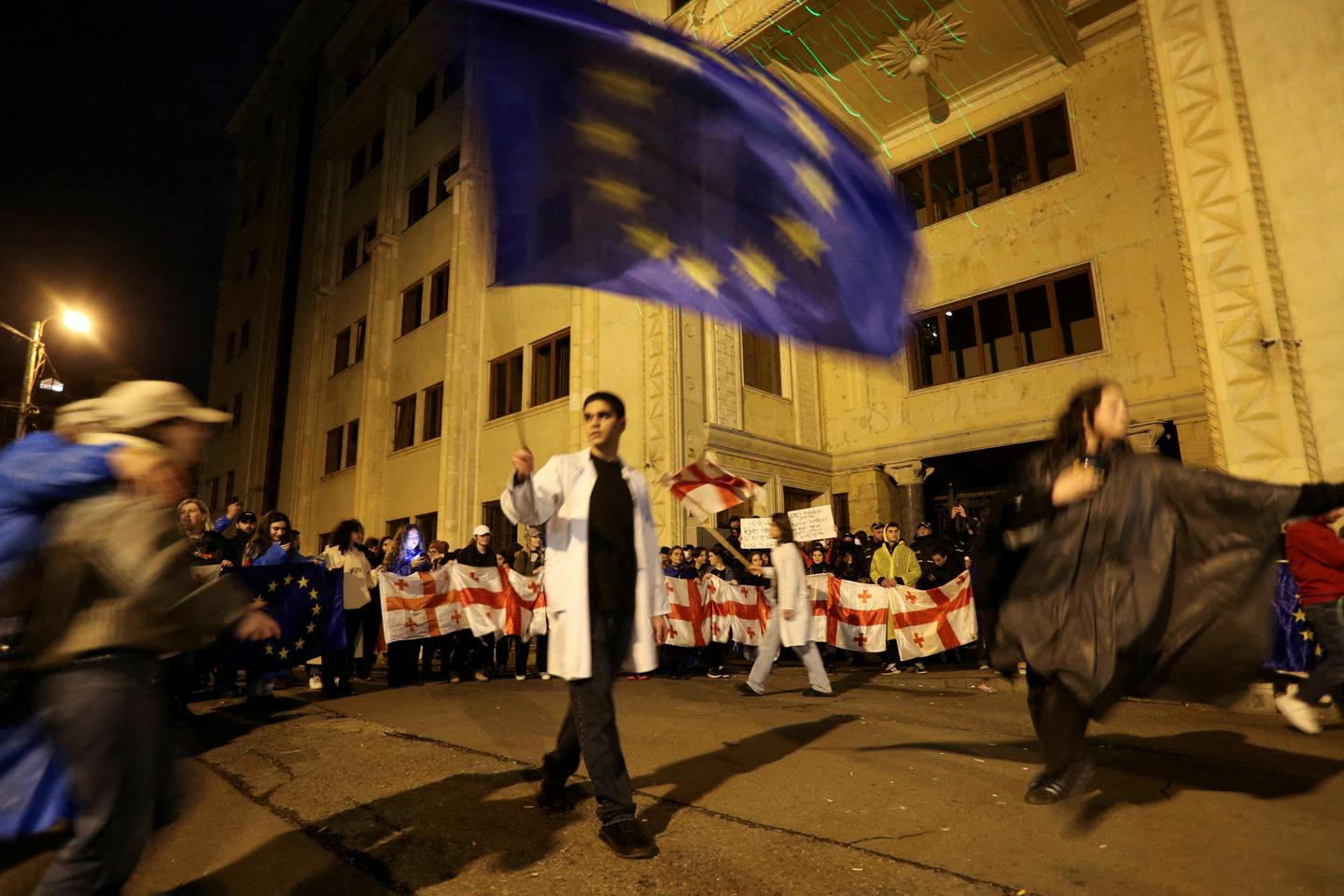


It's almost become a tradition: Whenever there's a crisis, the Baltic states head for the Caucasus. Upon their arrival in Tbilisi on Wednesday, May 15, the foreign ministers of the three Baltic republics, accompanied by their Icelandic counterpart, could not help but recall the unusual journey their leaders had made to the Georgian capital 16 years ago.
The atmosphere was frantic back then too. And it was also Russia that had sparked the summer of 2008 frenzy: Russia, the large neighbor that had twice annexed Georgia and whose tanks had just invaded it again, on the night of August 8. Officially, the Russian army had intervened in Georgia to protect the Russian-speaking minority in South Ossetia, a separatist province bordering Russia that Georgian forces had just bombed, thereby presenting a convenient provocation.
Leaving Beijing in a hurry, where he had attended the opening ceremony of the Olympic Games, then French president Nicolas Sarkozy jumped on his plane to negotiate a ceasefire between Moscow and Tbilisi on behalf of the European Union, of which France then held the rotating presidency. He left Moscow for Tbilisi on August 12, 2008, bearing a ceasefire agreement approved by Vladimir Putin (at that time Russia's prime minister). At the same time, his three Baltic colleagues − the Estonian, Lithuanian and Latvian prime ministers − accompanied by the Polish and Ukrainian heads of state, were heading for the Georgian capital by road, on the last leg of an arduous journey. The Russians, who controlled Georgian airspace, had authorized the French president's plane to land. But they did not allow that of the Polish president, who was forced to land in Azerbaijan.
In Tbilisi, Sarkozy and the Eastern European presidents were not on the same page. For one thing, they weren't in the same league − and as the Russians later recounted, the Frenchman let them know it. Furthermore, they weren't pursuing the same objective: The priority for Paris, with support from Berlin and Brussels, was to stop the Russian offensive, whatever the cost. The Baltics, the Poles and the Ukrainians, on the other hand, had come to stand up for the beleaguered Georgian people and their president, Mikheil Saakashvili.
Deliberately anti-European step
Sixteen years later, Paris and Berlin hold more respect for the Baltic capitals, whose voices have carried more weight in Brussels ever since Russian President Putin justified their fears by invading Ukraine. But the current trip by their ministers to Georgia − at a critical moment when the bill on "foreign influence" is being adopted, causing tens of thousands of opponents to pour out into the streets every evening − has once again been undertaken as a separate initiative.
You have 51.5% of this article left to read. The rest is for subscribers only.
